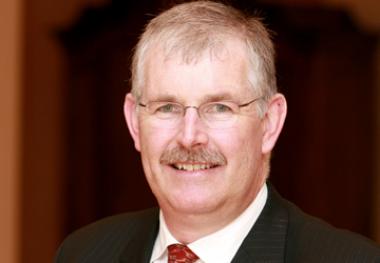Nedbank’s view on proposed bill to block land sales to foreigners
 Nedbank Corporate Property Finance regional executive, Ken Reynolds echoes some thoughts on the latest proposed contentious land bill to block foreigners from buying land in South Africa.
Nedbank Corporate Property Finance regional executive, Ken Reynolds echoes some thoughts on the latest proposed contentious land bill to block foreigners from buying land in South Africa.
The Government's plan to fast-track a bill barring foreigners from buying land in South Africa, raised commercial property investors and financiers eyebrows — as they are taking it on the chin at the half way mark.
The Regulations of Land Holdings Bill would mean foreigners will only be able to lease land for 30 years. The government hopes that the bill will become law within five year.
The land reform issue is a very emotive one and if we fail to keep cool heads around it, we might lose that one asset we all enjoy as a country — stability.
Nedbank Corporate Property Finance regional executive, Ken Reynolds echoes some thoughts on the latest developments saying the recent acquisition by Shanghai Zendai of 1600ha of vacant land from AECI Group between OR Tambo International and Sandton, and the subsequent unveiling of the global investor’s plans to build the ‘New York’ of Africa, understandably caused quite a stir in South African commercial property quarters.
While the plans by the Hong Kong listed company to build a financial hub with residential, commercial, light industrial and retail components will undoubtedly deliver a significant financial and employment injection into the local economy, the enthusiasm by some stakeholders and commentators regarding the potential for the new Modderfontein development to result in massive global property investment interest is, to my mind, somewhat misguided.
The Modderfontein project is certainly a good opportunity, and the combination of prime land that is ripe for development and an obvious commitment by a global investor with the necessary financial clout, means the project has every chance to be hugely successful.
That said, however, against the backdrop of the current economic climate and the recent announcement by Rural Development and Land Reform Minister, Gugile Nkwinti on proposed land policy to limit foreign ownership, it’s unlikely that Shanghai Zendai’s entry into this country signals any type of rush in terms of large foreign investment into South Africa’s commercial and industrial property markets in the short term.
My bearishness in this regard is primarily due to a simple combination of economic reality and basic practicality.
Ultimately, the main driver of any property development in any country is the economy. Without evidence of sustainable economic growth, development and investment will always be pedestrian at best.
Given that this is currently the case in South Africa, the Modderfontein project was unique in that it did not come about as a result of any economic fundamentals, but was rather facilitated primarily by the availability of ideally located development land and the timeous interest of a global property player with the financial means to acquire and develop that land.
On the practical front, there are currently few, if any, other pieces of viable land of a similar size and development capacity available in the country. This fact, combined with a less than favourable economic climate and the accompanying proposal regarding land reform in the country, means there is little likelihood that South Africa will attract the same level of international property investment interest in the near future.
That’s not to say that similar opportunities won’t arise, or that South Africa won’t see continued interest and investment activity from massive global property investors. It’s just unlikely that such interest will translate into significant development activity until the right land is made available and the country’s economic fundamentals are more conducive to such large-scale projects.
Understandably, the likelihood of such additional large-scale global investment into SA property development will be significantly enhanced should the Modderfontein project prove successful. However, given the scale of the project and the likely lengthy timelines, such evidence of success, and any resulting rush to invest by other large investors, may still be a long time coming.

















